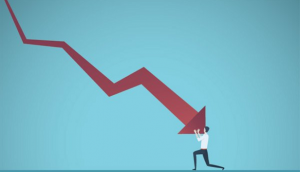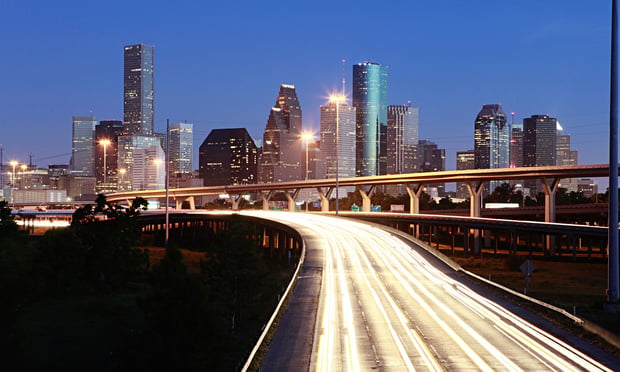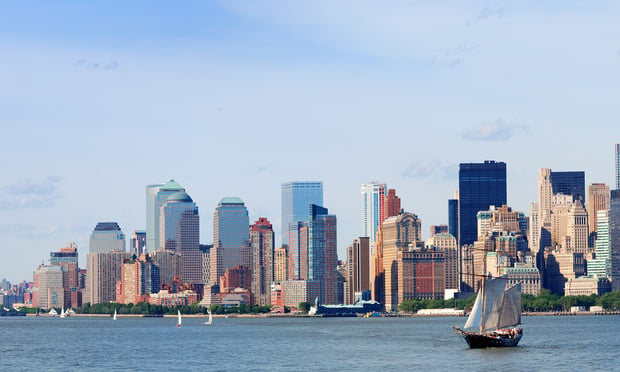While net lease is one of the most durable segments in commercial real estate, the coronavirus pandemic thwarted first-quarter sales, according to Avison Young's Q1 2020 Cap Rate Report.
The net lease sector's sales activity fell from 586 deals in Q4 2019 to 416 in Q1 2020. Despite that decline, cap rates dropped seven basis points 6.58% to 6.51%. That may be partially attributable to the average lease term increasing from 10.5 years to 11.6 years.
"This finding suggests that depressed volume is caused not by a lack of investor confidence in the sector, but rather by coronavirus-related obstacles to transacting efficiently," Avison Young noted in the report. "Unavailability of debt, inability to inspect properties and difficulty negotiating in a fully remote work environment are chief among these obstacles."
Richard T. Murphy, senior vice president, US capital markets net lease group at Avison Young, says cap rates have remained steady because the impact of COVID-19 hadn't fully tricked through the net lease market in Q1.
"However, many deals that were slated to close at the end of the quarter either got delayed or maybe didn't close at all," Murphy says. "So, we saw a decrease in the total number of deals."
In the report, Avison Young took a deeper look at various sectors within net lease. Casual dining saw a 21-bps decline quarter to quarter, which may be attributable to the average lease term jumping from 11.9 years to 14.2. On deals with ten years or more remaining on the lease term, cap rates increased from 6.06% to 6.19%.
Though quick service restaurants (QSR) had the largest deal volume of any sector, the number of trades dropped from 163 to 123 and cap rates fell from 5.74% to 5.57%, despite average lease terms remaining roughly the same. Avison Young speculated that even though QSRS are restricted to delivery and drive through, investors draw confidence from corporate credit.
Even though QSR's are open, operating and done well compared to other retailers, there are some concerns going forward.
"Those quick-service restaurant concepts operate on very thin margins," Murphy says. "So you have a very small drop in sales, and it can significantly hurt their bottom line. Even if someone is doing 70% or 80% of the sales they were doing, their profits may have been wiped out. While the quick-service operators are a lot more durable than the casual dining sector. But even they are not as durable as groceries, pharmacies, the dollar stores and convenience stores."
Dollar stores, which have also been a staple throughout the COVID-19 shutdowns, saw cap rates from 7.07% to 6.94%. Still, their number of deals dropped from 113 to 64 in Q1.
Yet another stalwart throughout the pandemic, pharmacies, saw a nine bps increase in the average cap rates. However, pharmacies, with more than ten years remaining on their lease, saw cap rates jump from 5.82% to 6.65%. Overall transactions fell from 69 to 43 in the sector.
Cap rates for convenience stores dropped 94.8 bps, which Avison Young said was a result that almost all of the sales were 7-Elevens. Usually, 7-Elevens sales represent half of the convenience store volume.
Despite the decline in sales, convenience stores, pharmacies, dollar stores, and QSRs are in better shape than other sectors, such as gyms and casual dining. "Anything open right now is something that is going to survive and perhaps thrive," Murphy says. "Anything closed right now, um, is, you know, is going to be, it's going to be hurting.
Want to continue reading?
Become a Free ALM Digital Reader.
Once you are an ALM Digital Member, you’ll receive:
- Breaking commercial real estate news and analysis, on-site and via our newsletters and custom alerts
- Educational webcasts, white papers, and ebooks from industry thought leaders
- Critical coverage of the property casualty insurance and financial advisory markets on our other ALM sites, PropertyCasualty360 and ThinkAdvisor
Already have an account? Sign In Now
*May exclude premium content© 2025 ALM Global, LLC, All Rights Reserved. Request academic re-use from www.copyright.com. All other uses, submit a request to [email protected]. For more information visit Asset & Logo Licensing.









